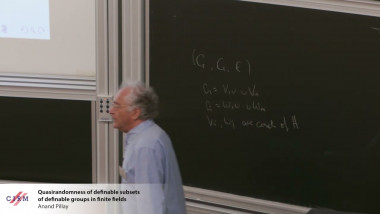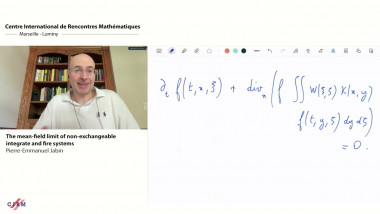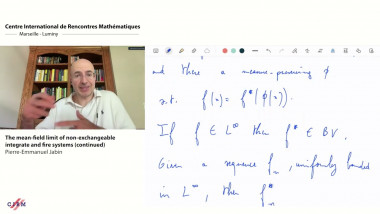Apparaît dans la collection : Machine Learning and Signal Processing on Graphs / Apprentissage automatique et traitement du signal sur graphes
In the scenario where multiple instances of networks with same nodes are available and nodes are attached to spatial features, it is worth combining both information in order to explain the role of the nodes. The explainability of node role in complex networks is very difficult, however crucial in different application scenarios such as social science, neuroscience, computer science... Many efforts have been made on the quantification of hubs revealing particular nodes in a network using a given structural property. Yet, for spatio-temporal networks, the identification of node role remains largely unexplored. In this talk, I will show limitations of classical methods on a real datasets coming from brain connectivity comparing healthy subjects to coma patients. Then, I will present recent work using equivalence relation of the nodal structural properties. Comparisons of graphs with same nodes set is evaluated with a new similarity score based on graph structural patterns. This score provides a nodal index to determine node role distinctiveness in a graph family. Finally, illustrations on different datasets concerning human brain functional connectivity will be described.














